Hyundai Bayon vs Renault Mégane - Differences and prices compared
Compare performance (90 HP vs 218 HP), boot space and price (20100 £ vs 35100 £ ) at a glance. Find out which car is the better choice for you – Hyundai Bayon or Renault Mégane?
Costs and Efficiency:
Price and efficiency are key factors when choosing a car – and this is often where the real differences emerge.
Hyundai Bayon has a decisively advantage in terms of price – it starts at 20100 £ , while the Renault Mégane costs 35100 £ . That’s a price difference of around 15000 £.
Engine and Performance:
Power, torque and acceleration say a lot about how a car feels on the road. This is where you see which model delivers more driving dynamics.
When it comes to engine power, the Renault Mégane has a significantly edge – offering 218 HP compared to 90 HP. That’s roughly 128 HP more horsepower.
In acceleration from 0 to 100 km/h, the Renault Mégane is clearly quicker – completing the sprint in 7.40 s, while the Hyundai Bayon takes 11.90 s. That’s about 4.50 s faster.
There’s also a difference in torque: Renault Mégane pulls convincingly stronger with 300 Nm compared to 172 Nm. That’s about 128 Nm difference.
Space and Everyday Use:
Cabin size, boot volume and payload all play a role in everyday practicality. Here, comfort and flexibility make the difference.
Both vehicles offer seating for 5 people.
In curb weight, Hyundai Bayon is convincingly lighter – 1175 kg compared to 1719 kg. The difference is around 544 kg.
In terms of boot space, the Hyundai Bayon offers hardly perceptible more room – 411 L compared to 389 L. That’s a difference of about 22 L.
When it comes to payload, Hyundai Bayon barely noticeable takes the win – 460 kg compared to 446 kg. That’s a difference of about 14 kg.
Who comes out on top?
Overall, the Renault Mégane shows itself to be wins the duel decisively and secures the title of DriveDuel Champion.
It convinces with the more balanced overall package and proves to be the more versatile choice for everyday use.
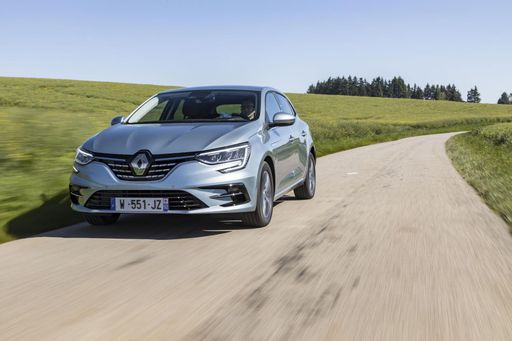
Renault Mégane
Costs and Consumption
View detailed analysis
Engine and Performance
View detailed analysis
Dimensions and Body
View detailed analysis
Hyundai Bayon
The Hyundai Bayon slips neatly between city runabout and small SUV, offering surprising practicality and a fresh, confident design that stands out in urban traffic. It's an easy buy for shoppers who want smart packaging, tidy handling and a dash of personality without fuss — a sensible little crossover that makes everyday driving a bit more enjoyable.
details




Renault Mégane
The Renault Mégane blends Gallic flair with practical everyday charm, showing that sensible transport can still have personality and poise. It’s a smart pick for buyers who want a comfortable, stylish hatchback that feels a little more special than the usual commute companion.
details
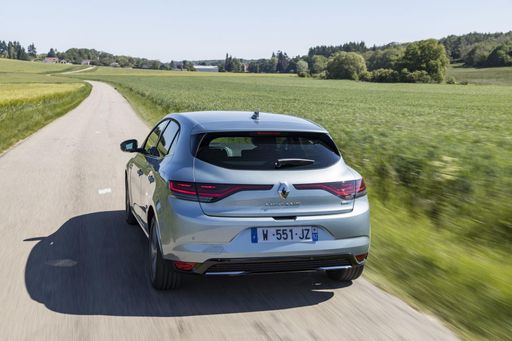
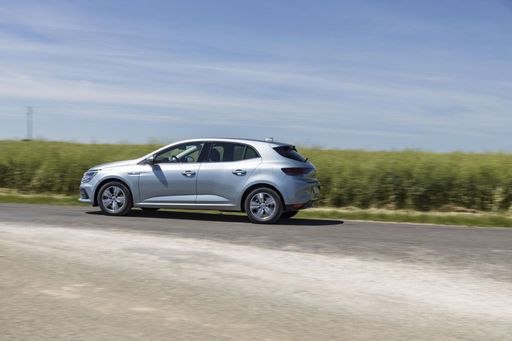
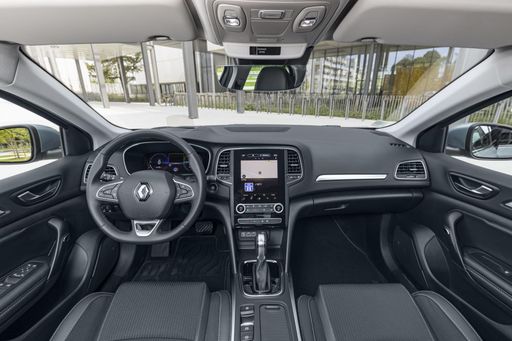
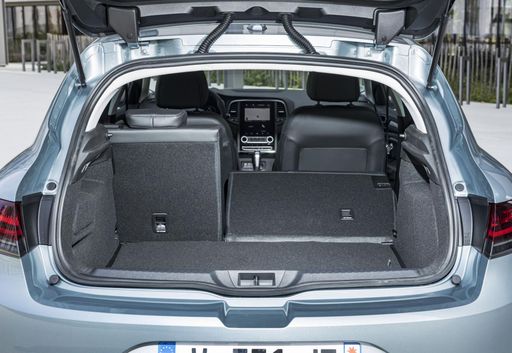
Costs and Consumption |
|
|---|---|
|
Price
20100 - 25800 £
|
Price
35100 - 38500 £
|
|
Consumption L/100km
5.80 L
|
Consumption L/100km
-
|
|
Consumption kWh/100km
-
|
Consumption kWh/100km
15.40 kWh
|
|
Electric Range
-
|
Electric Range
452 km
|
|
Battery Capacity
-
|
Battery Capacity
-
|
|
co2
130 - 132 g/km
|
co2
0 g/km
|
|
Fuel tank capacity
-
|
Fuel tank capacity
-
|
Dimensions and Body |
|
|---|---|
|
Body Type
SUV
|
Body Type
SUV
|
|
Seats
5
|
Seats
5
|
|
Doors
-
|
Doors
5
|
|
Curb weight
1175 - 1200 kg
|
Curb weight
1719 kg
|
|
Trunk capacity
411 L
|
Trunk capacity
389 L
|
|
Length
-
|
Length
4200 mm
|
|
Width
1775 mm
|
Width
1783 mm
|
|
Height
-
|
Height
1505 mm
|
|
Max trunk capacity
-
|
Max trunk capacity
1332 L
|
|
Payload
450 - 460 kg
|
Payload
446 kg
|
Engine and Performance |
|
|---|---|
|
Engine Type
Petrol
|
Engine Type
Electric
|
|
Transmission
Manuel, Automatic
|
Transmission
Automatic
|
|
Transmission Detail
Manual Gearbox, Dual-Clutch Automatic
|
Transmission Detail
Reduction Gearbox
|
|
Drive Type
Front-Wheel Drive
|
Drive Type
Front-Wheel Drive
|
|
Power HP
90 HP
|
Power HP
218 HP
|
|
Acceleration 0-100km/h
11.9 - 13.3 s
|
Acceleration 0-100km/h
7.40 s
|
|
Max Speed
-
|
Max Speed
160 km/h
|
|
Torque
172 Nm
|
Torque
300 Nm
|
|
Number of Cylinders
3
|
Number of Cylinders
-
|
|
Power kW
66 kW
|
Power kW
160 kW
|
|
Engine capacity
998 cm3
|
Engine capacity
-
|
General |
|
|---|---|
|
Model Year
2025
|
Model Year
2025
|
|
CO2 Efficiency Class
D
|
CO2 Efficiency Class
A
|
|
Brand
Hyundai
|
Brand
Renault
|
What drivetrain options does the Hyundai Bayon have?
The Hyundai Bayon is available as Front-Wheel Drive.




